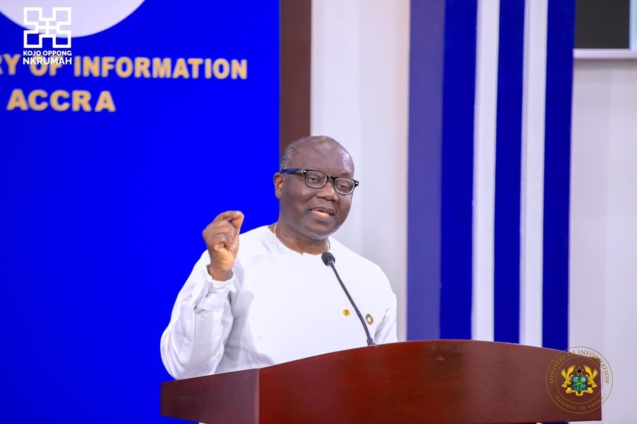Ghana’s external debt restructuring may now be hard to avoid, despite the current government being reluctant to touch sovereign Eurobonds in any such potential exercise, according to several market participants polled by Singapore based financial research firm, REDD Intelligence.
“Ghana is a country that is promising a lot but is always under-delivering; the government hasn’t been able to turn the economy around”, it said in its latest report on Ghana.
Mark Bohlund, Senior Analyst at REDD Intelligence, first pointed to a likely need for Ghana’s sovereign debt restructuring back in October 2021, but general market chatter about its inevitability has intensified only over the last month, after the country formally approached the International Monetary Fund (IMF) for help.
In the latest REDD CEEMEA podcast, the team at the research firm discussed Ghana’s increasingly troubling debt situation and challenges of including domestic debt in any potential restructuring, and looked at collective action clauses in Ghana’s sovereign Eurobonds.
“ After many months of hoping the country would be able to increase its revenue streams and tighten its fiscal policy to avert a looming balance of payments crisis, most international investors are now reluctantly assessing a potential timing and format of an expected debt exercise. The key next step will be a debt sustainability assessment from the IMF, which is expected by the end of 2022 or in early 2023, and will help determine if the country has a liquidity or a debt sustainability issue, agreed two sovereign strategists and the fund manager”.
It added that “the market consensus is that the African nation [Ghana] is unlikely to regain market access any time soon, with or without an IMF programme. With just over $7 billion of total international reserves and no major external debt repayments until 2025, Ghana likely has up to 12 months before it runs out of liquidity, agreed all three”.
Furthermore, REDD Intelligence said an economic programme from the IMF could happen in the first quarter of 2023, as the country has to pay $1 billion Eurobond coupons annually over the next few years.
Liquidity or solvency problem?
REDD Intelligence Market Strategist said the country must adopt two main scenarios.
In the first scenario, the country has a liquidity problem and therefore the IMF programme discussions will then focus on delivering primary surplus, restoring macro-stability, and regaining market access by 2025, when $1.5 billion in Eurobond maturities are due.
In the second scenario of Ghana having a solvency problem, the strategist expected a protracted restructuring — either through the G20 Common Framework, similar to Chad, Ethiopia and Zambia, or a classical default, similar to Sri Lanka.
In its July 2021 Article IV on Ghana, the IMF stated that public debt is sustainable so long as the authorities’ medium-term consolidation plan is rigorously and credibly implemented to improve the primary balance, put debt on a declining trajectory, and ensure market access.
“I expect a more classical default scenario with a trigger happening as early as first quarter 2023,” the strategist said.
According to this strategist, the IMF could still engage in programme discussions and sign off on a programme under its lending into arrears policy.
This would require Ghana to stay current on its multilateral commitments, while negotiations with the private sector would need to be in good faith but will likely be protracted.
Latest Stories
-
I’ve never been invited by any security agency; Kwakye Ofosu lied – Ntim Fordjour
21 minutes -
Police probe death of officer who drowned during anti-galamsey operation in Offin River
28 minutes -
Two arrested for discharging firearms at funeral
40 minutes -
Implementation of 10% tariff on Ghanaian products to the U.S, Minority urges gov’t to show working
48 minutes -
The Complicity of Ghanaians in Visa Scams: A call for reflection
1 hour -
GPL 2024/25: Razak Simpson belter downs Hearts of Oak in Tuba
1 hour -
Civil Aviation Authority’s D-G dismissed, Stephen Wilfred Arthur takes over as acting head
1 hour -
Speaker approves NIB’s request to meet 2 MPs, Mustapha Yussif and A Plus, to aid investigations
1 hour -
Ghana’s $25bn agreement must deliver real benefits to vulnerable communities – CCCFS
1 hour -
Police arrest 2 for transporting suspected stolen ECG cables in Central Region
1 hour -
Ghana needs a Ministry of Common Sense – A Plus
1 hour -
Don’t listen to NPP’s noise – A Plus on alleged drug trafficking flight claims
1 hour -
‘Missing’ ECG containers may have been auctioned by GRA – Former ECG boss
2 hours -
KATH renal unit undergoes transformation, dialysis machines increase from two to 20
2 hours -
“It’s strange”- Former GPHA D-G questions alleged auctioning of ECG containers by GRA
2 hours

